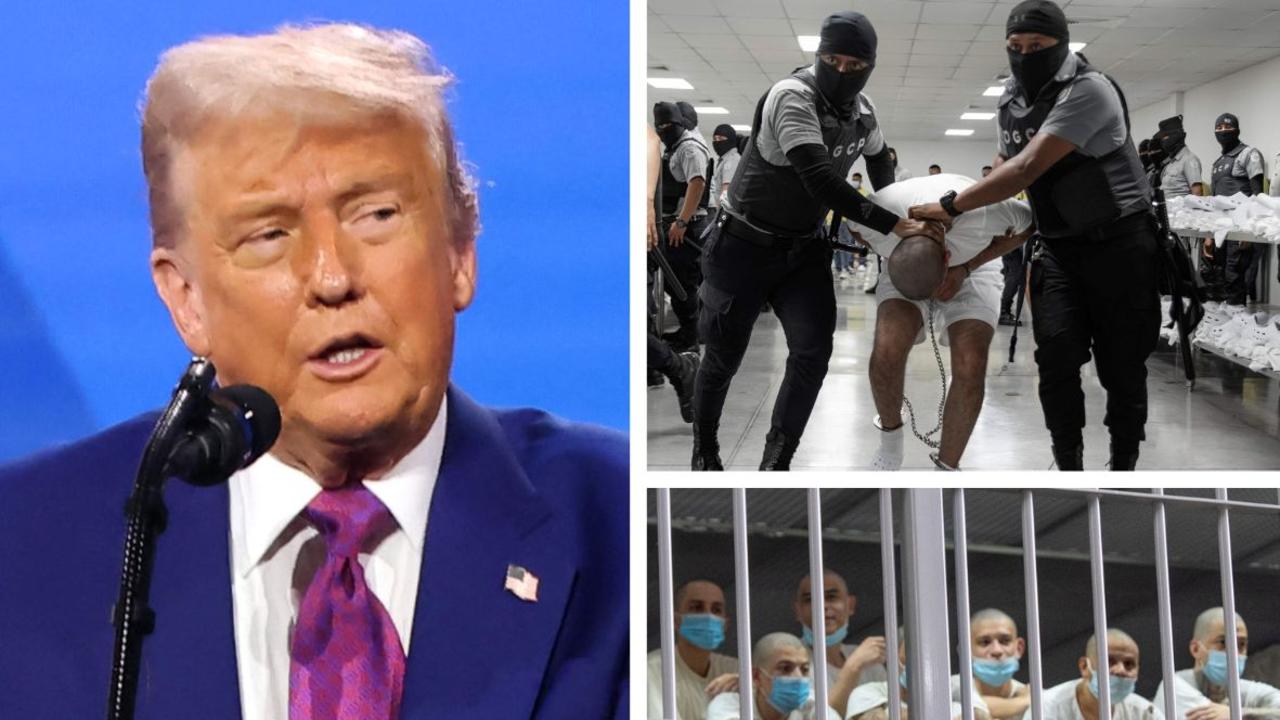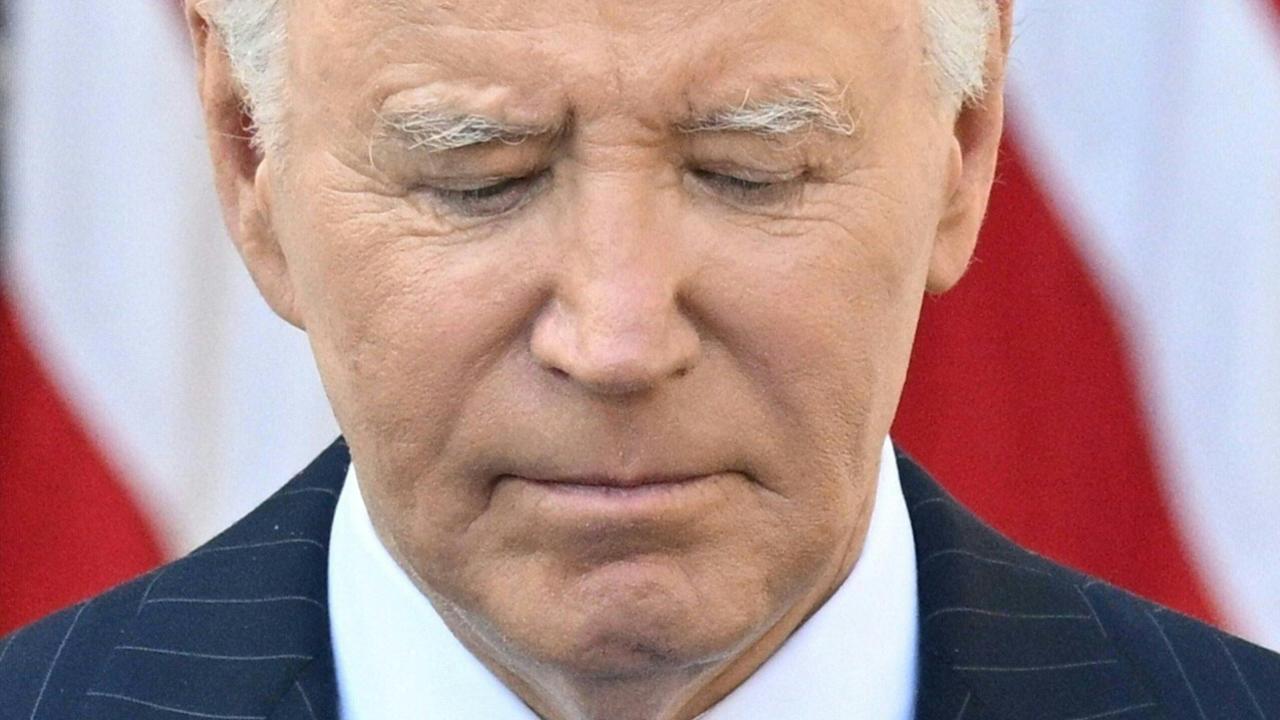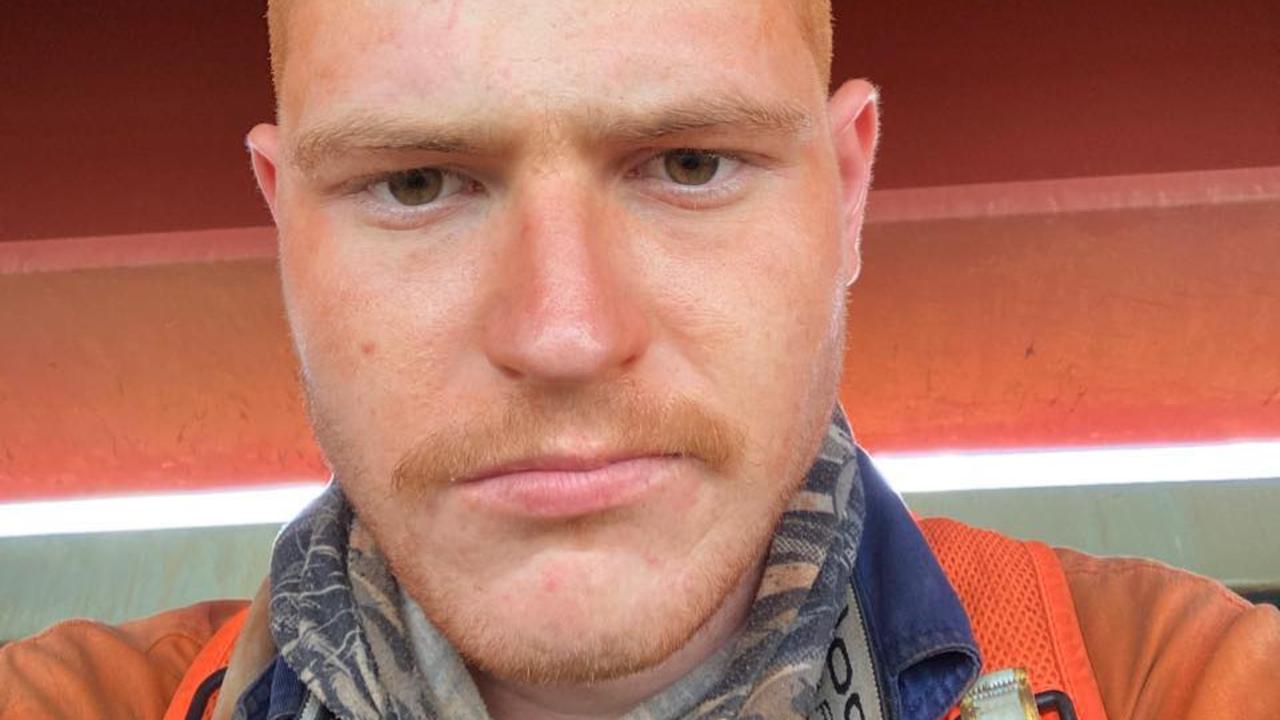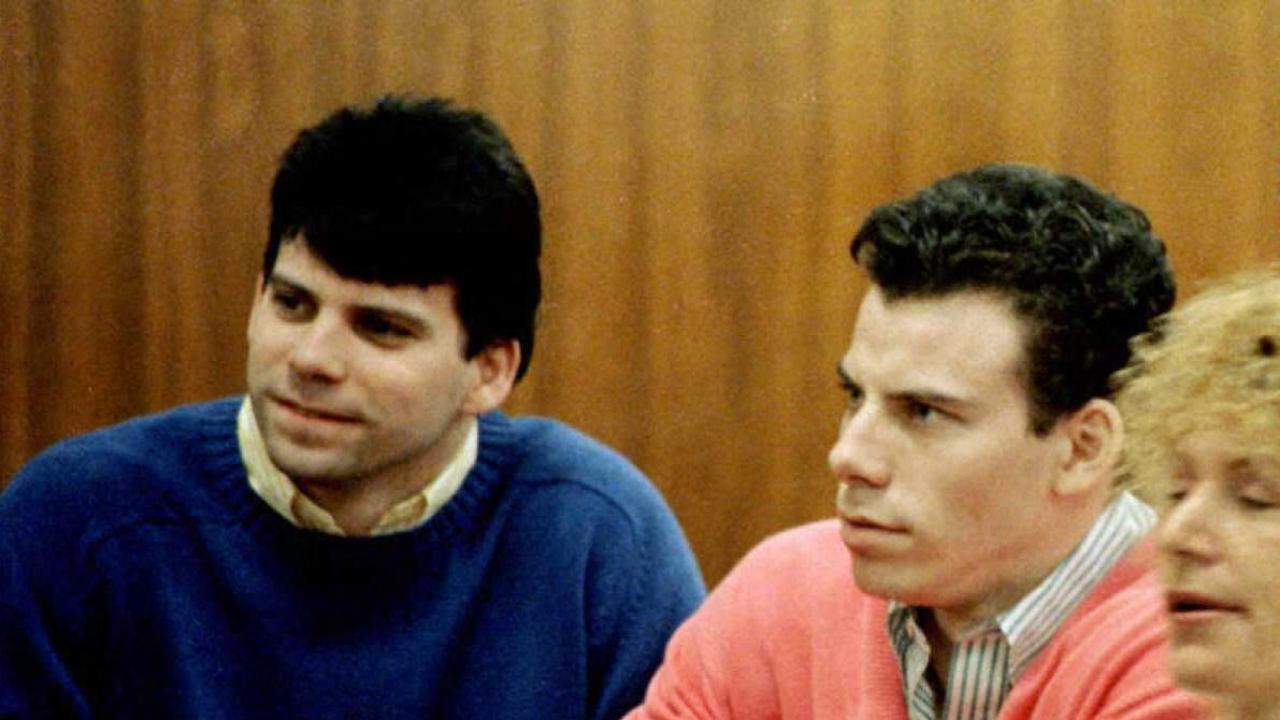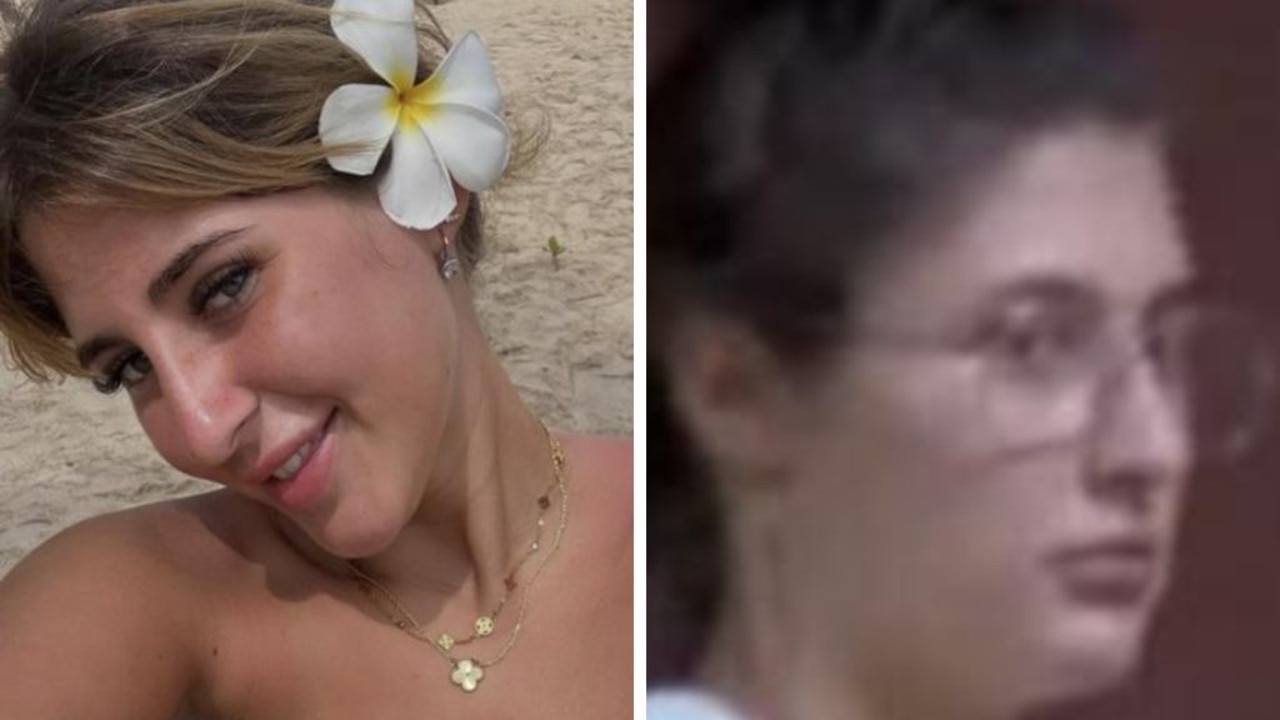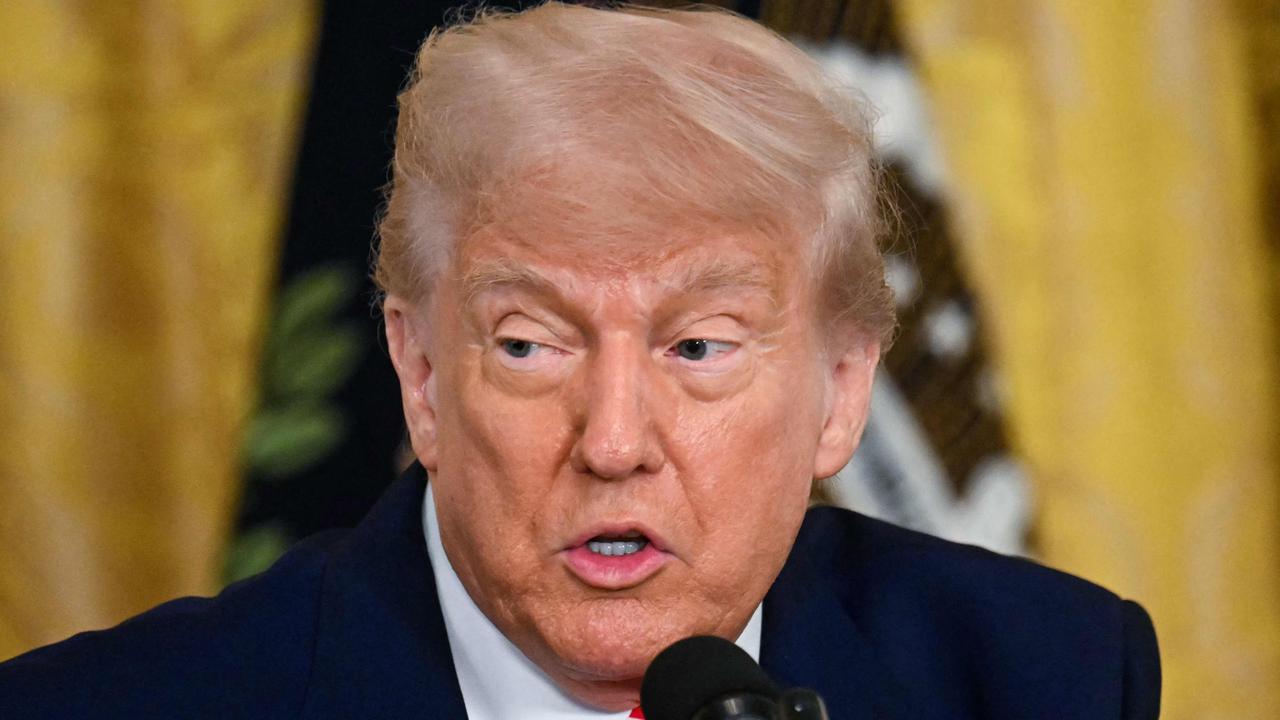Vladimir Putin’s right-hand woman Valentina Matviyenko was Ukrainian born
A female senior member of Vladimir Putin’s inner-circle supports the Ukraine war, despite it being her homeland, as captured British soldiers are sentenced to death.
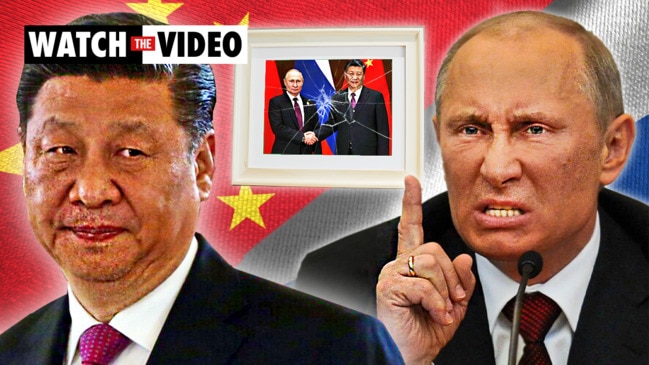
World
Don't miss out on the headlines from World. Followed categories will be added to My News.
Russia’s parliament speaker Valentina Matviyenko wholeheartedly supports Vladimir Putin’s war on Ukraine.
This is despite her being born in western Ukraine, then Soviet Ukraine, in 1949.
When Putin was planning to invade his western neighbour, he asked his National Security Council members their opinion.
Matviyenko spoke in support of his plans, saying “for seven years now, a humanitarian catastrophe has been unfolding before our eyes in the centre of Europe”.
She continued to provide examples of alleged mistreatment of people in Ukraine as justification for why Russia should step in.
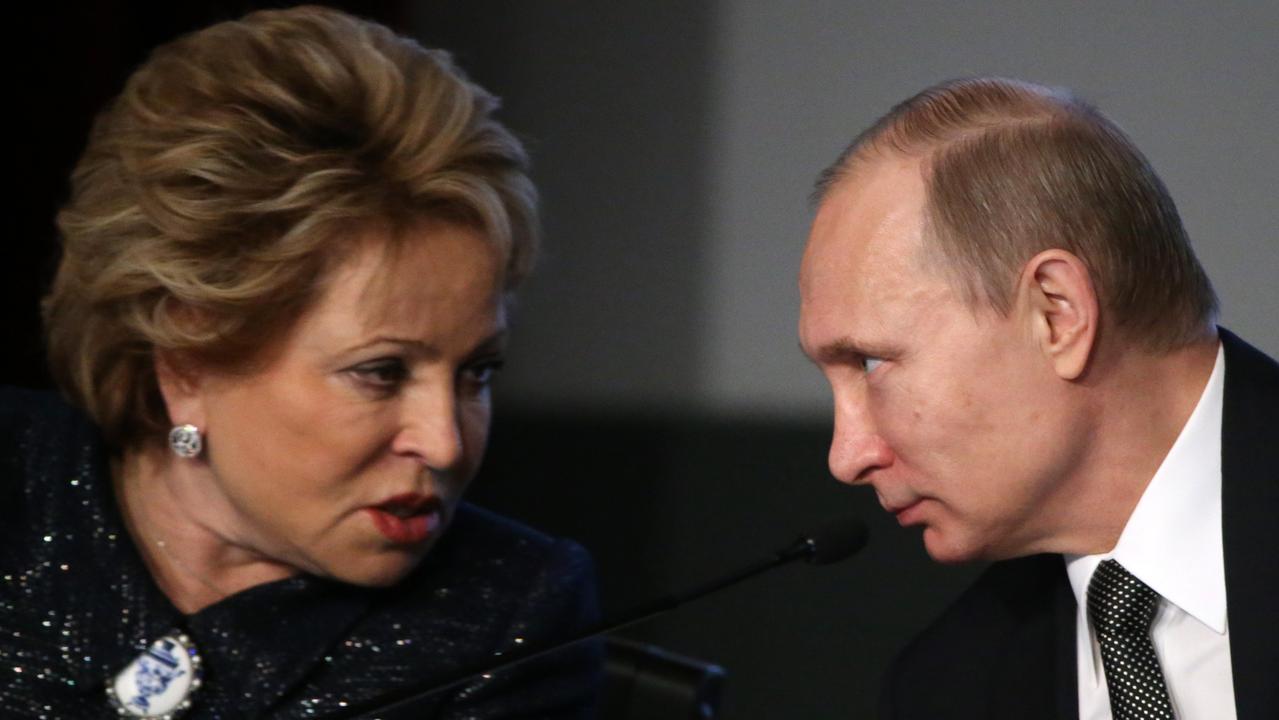
The long-time politician is a senior member of Putin’s government and her history with her leader spans some 20-odd years, it’s understood.
Most of Putin’s inner circle, including Matviyenko, got their start in politics in St Petersburg, where the Russian leader is from.
Matviyenko initially had her sights set on a career in science but was persuaded to join politics, starting out as a member of St Petersburg’s Soviet Community Party and rising to become USSR’s youngest female MP and the chairwoman of the Supreme Soviet Committee on Women, Families, Maternity and Childhood, reports the ABC.

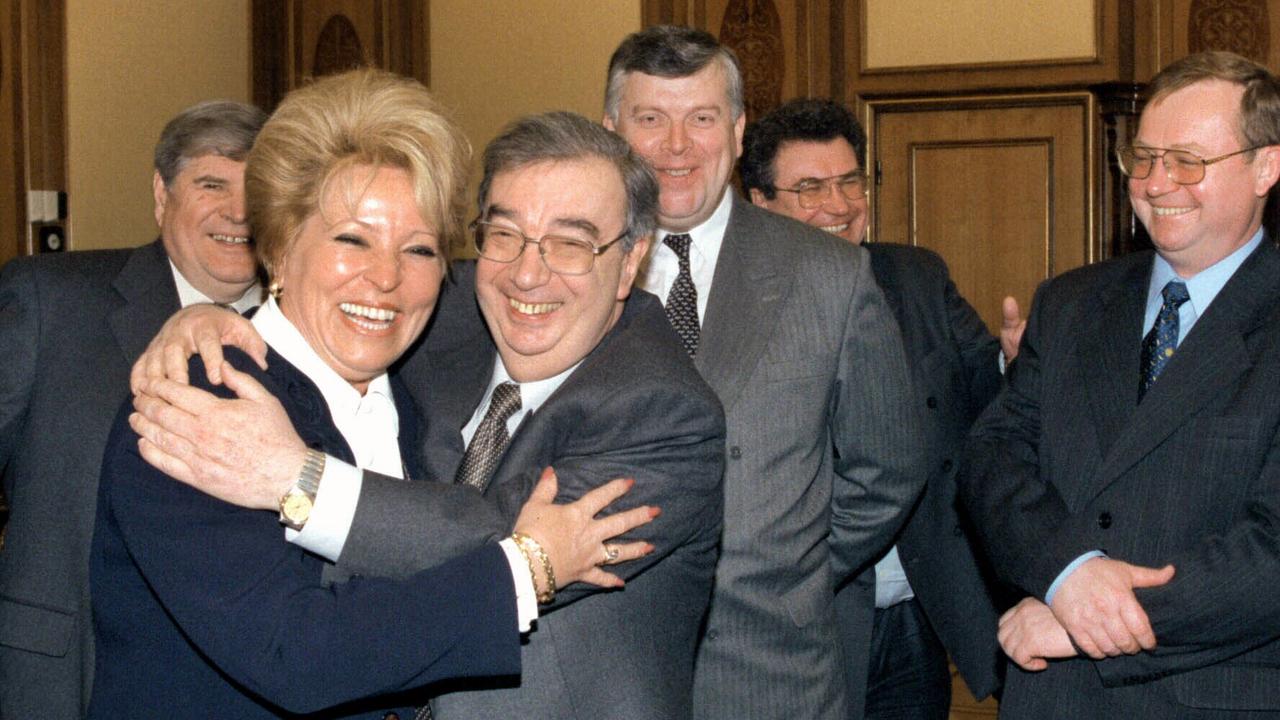
When Russia’s presidency came up for grabs Matviyenko, who could have been a contender for the position, threw her support behind Putin.
Fast forward a couple of years, Matviyenko ran for governor of St Petersburg with Putin’s endorsement in 2003. The city is understood to have greatly improved under her leadership.
In 2011, Matviyenko was made speaker of Russia’s Federal Council after winning a seat in the upper house of parliament.
The appointment her the third most powerful person in the country and the highest position held by a Russian woman since Empress Catherine the Great in 1762.
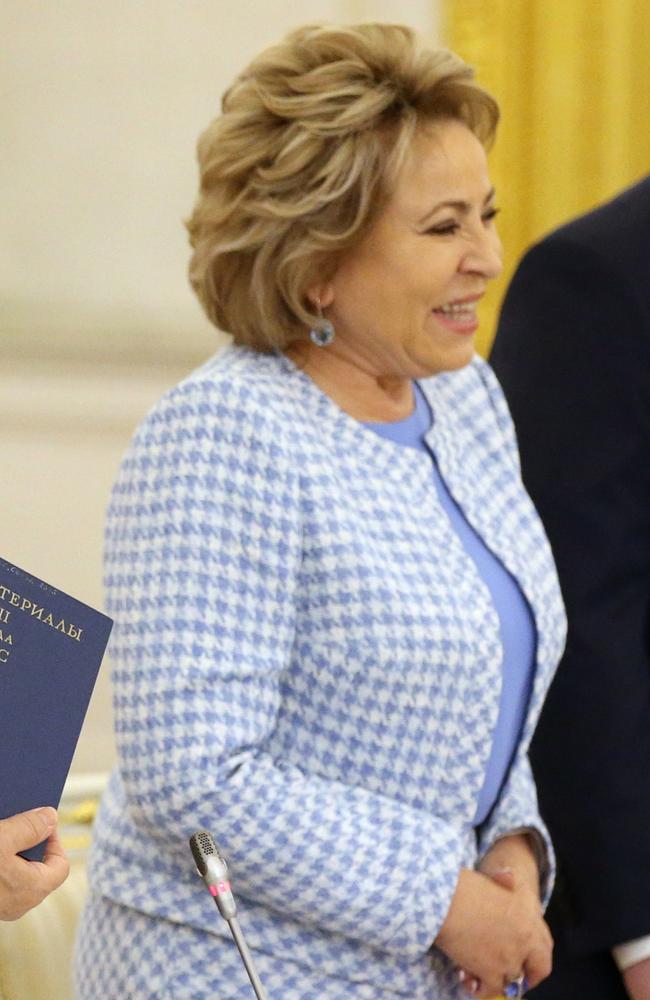
BRITISH FIGHTERS SENTENCED TO DEATH
Pro-Moscow separatists sentenced to death two British fighters and a third from Morocco, who were captured by Russian troops while fighting for Ukraine, Russian news agencies reported on Thursday local time.
The “supreme court of the Donetsk People’s Republic” ordered the death penalty for Aiden Aslin, Shaun Pinner and Saadun Brahim after the three were accused of acting as mercenaries for Ukraine, the TASS news agency said.
Pinner and Aslin pleaded guilty to “training in order to carry out terrorist activities” according to a video released by DPR Supreme Court, Russian state media reports.
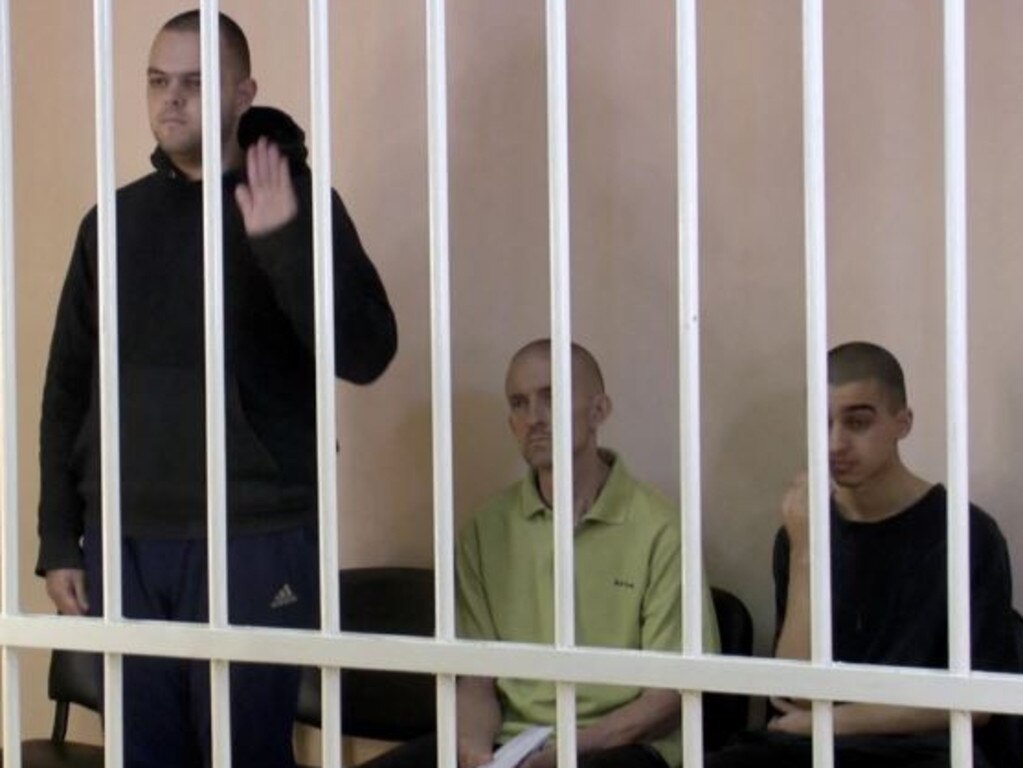
Aslin, 28, and Pinner, 48, are being held in the breakaway region in the east of Ukraine.
They were sentenced to death by firing squad by the court in the unrecognised republic.
Shaun appeared distraught and close to tears as the execution verdict was announced, staring at the ground.
The three accused will appeal the decision, Pavel Kossovan, a lawyer representing one of them, told TASS.
The court also told them they could ask for a pardon, the agency reported. Ukrainian foreign ministry spokesman Oleg Nikolenko dismissed the proceedings as “placing propaganda interests above the law”.
During a trial that lasted three days, the men pleaded guilty to committing “actions aimed at seizing power and overthrowing the constitutional order of the Donetsk People’s Republic”, news agency Interfax said.

The two British citizens surrendered in April in Mariupol, a port city in southern Ukraine that was captured by Russian troops after a weeks-long siege, Interfax said.
Brahim surrendered in March in the eastern town of Volnovakha. In April, the two Britons were shown on Russian state television, demanding that Prime Minister Boris Johnson negotiate their release.
News of the verdict has provoked fury in the UK, with Britain’s Foreign Secretary Liz Truss and Aslin’s family MP Robert Jenrick among those to condemn the decision, reports The Sun.
Journalists were not allowed into the trial, which was held in the shortest possible time, and all the news from the court came via Russian state media.
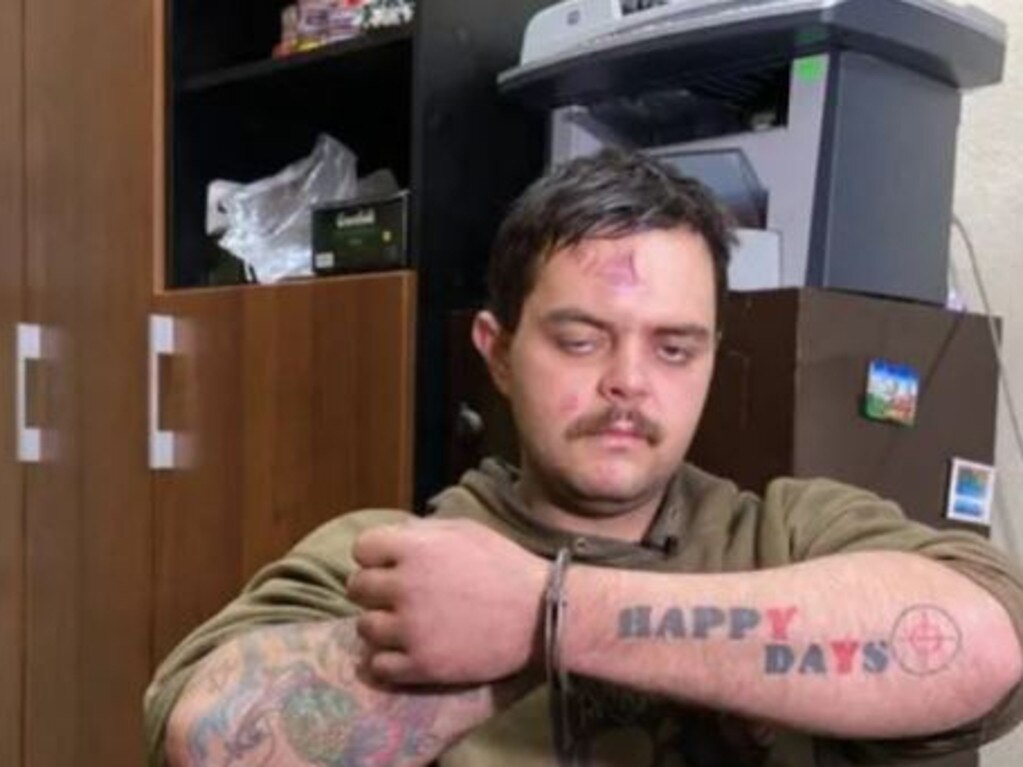
Pro-Kremlin journalists published only brief videos from the trial.
Observers have described the charges as “fabricated” and the trial as a “demonstrative” attempt to imitate the trials of Russian soldiers for war crimes in Kyiv.
All three men have a month to appeal against the death penalty, according to the chairman of the judicial board, Russian state media reported.
Their sentences could possibly be commuted to prison sentence of 25 years to life.
Russia is expected to demand that Britain appeal directly to rebel authorities in Donetsk – which the UK does not recognise.
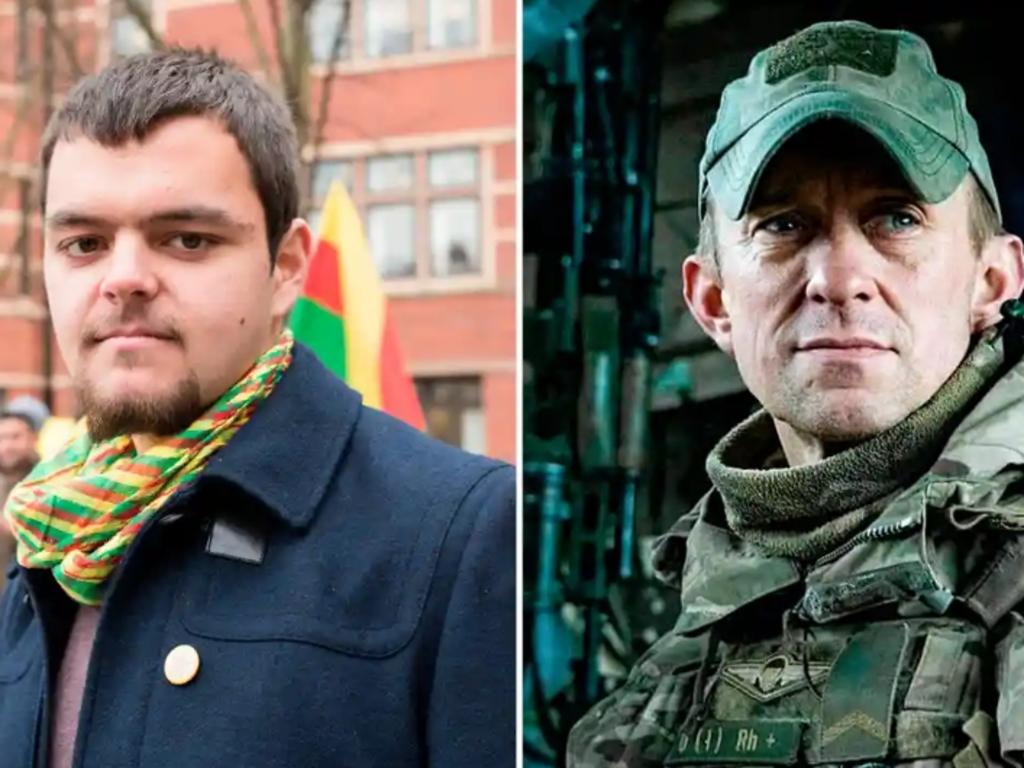
Both men – who have lived in the country since 2018 – said they were serving with regular military units in Mariupol and so should be protected as prisoners of war under the Geneva Convention.
They were seen in a metal cage in court on a video from the messaging app Telegram alongside Saaudun Brahim.
PUTIN’S SHOCK MOVE
Vladimir Putin has abruptly pulled out of his annual live Q&A event with public.
The withdrawal has reignited speculation of the state of Putin’s health, which has been the source of ongoing rumours.
The ‘Direct Line with Vladimir Putin’ allows Russians to ask Putin questions – sometimes millions can be received, but he typically only answers about 70.
It has been run every year for the last two decades except for in 2004 and 2012
The Kremlin last week said the event would take place, raising suspicions about the sudden change.
Kremlin spokesman Dmitry Peskov told reporters that a new date for the event is “unknown”, but that it “cannot take place this month”.
One of the theories behind the postponement is that the Kremlin fears Putin could face a barrage of tough questions over the invasion of Ukraine.
The other theory is the move is in response to Mr Putin’s alleged failing health, with speculation that he would struggle to remain on TV for up to four hours.
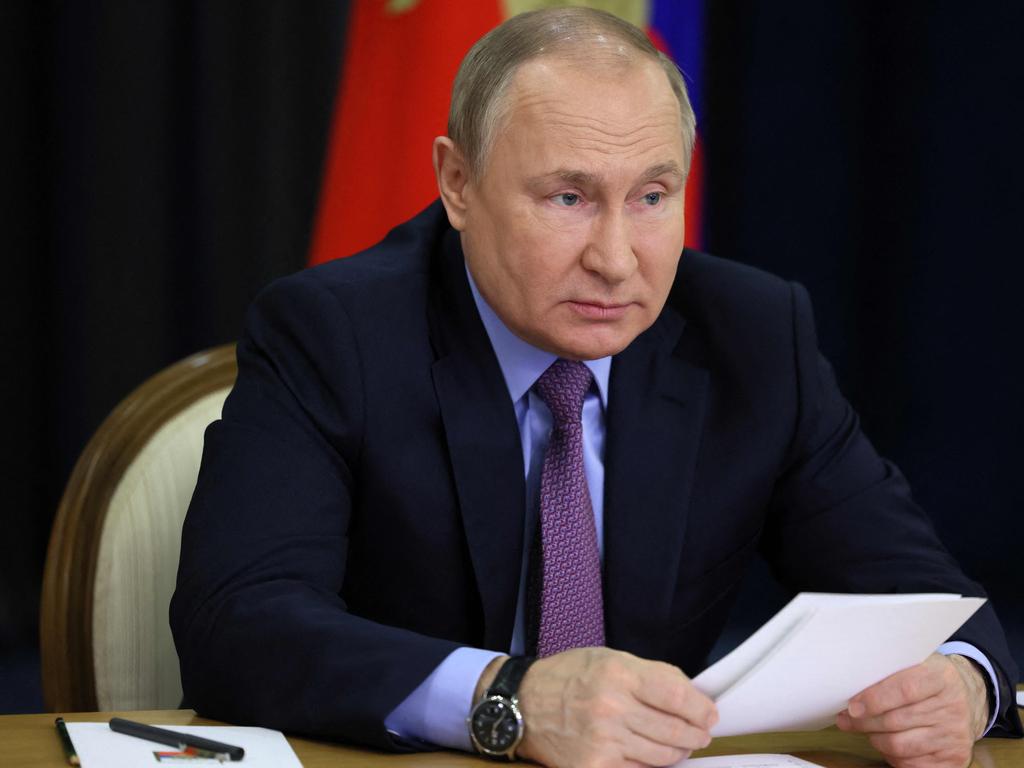
UKRAINE CONSIDERS RETREAT
Ukraine is considering a retreat from the eastern city of Severodonetsk, a senior official conceded.
The strategic city has become the focus of Russia’s offensive as it seeks to seize an eastern swath of Ukraine.
Sergiy Gaiday, governor of the Luhansk region, which includes the city, said Ukraine’s forces might have to pull back as Severodonetsk is being shelled by Russian troops “24 hours a day”.

It comes a day after Moscow claimed they had “full control” of residential areas in the intense street-to-street battle.
“It is possible that we will have to retreat” to better fortified positions, Mr Gaiday said in an interview on the TV channel 1+1.
Russia’s offensive is now targeting the Donbas region, which includes Luhansk and Donetsk, after its forces were pushed back from Kyiv and other areas following the February invasion.
The cities of Severodonetsk and Lysychansk, which are separated by a river, are the last areas still under Ukrainian control in Luhansk.
Severodonetsk appeared close to being captured just days ago but Ukrainian forces launched counter-attacks and managed to hold out, despite warnings they were outnumbered by superior forces.
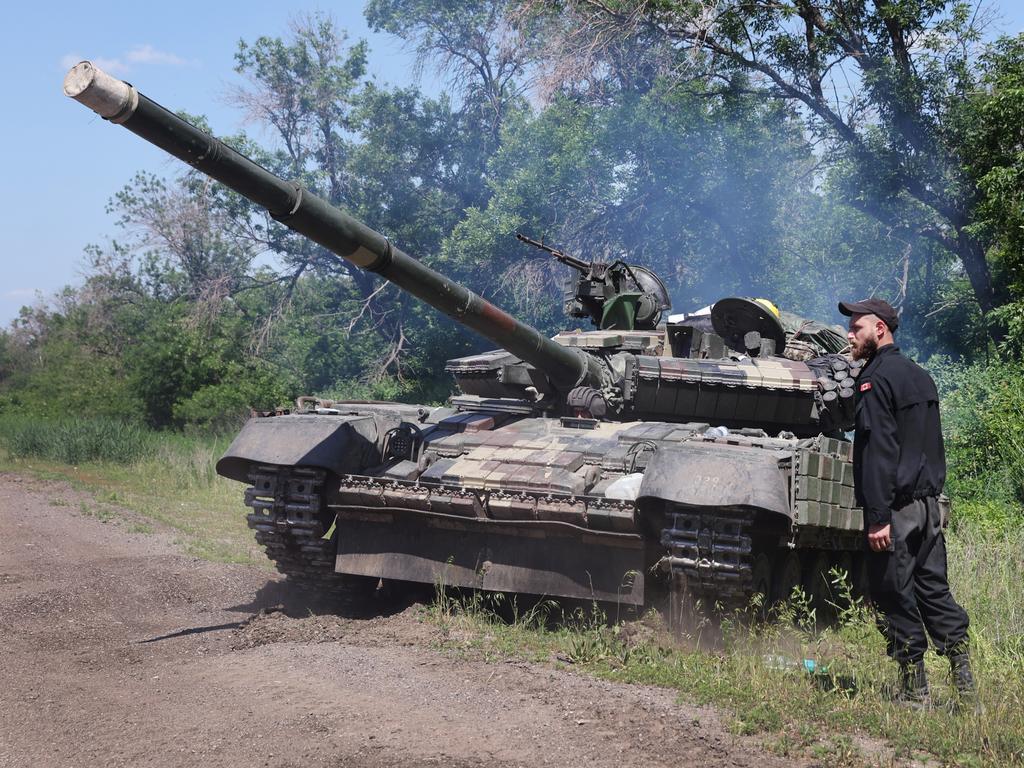
“Severodonetsk is where the fiercest battles are raging,” Ukrainian defence ministry spokesman Olexandr Motuzianyk said, adding that its troops were mounting counterassaults where possible.
Lanny Davis, a US lawyer for Ukraine tycoon Dmytro Firtash, said 800 civilians had taken refuge in the bunkers inside his huge Azot chemical plant in the city.
The situation was also increasingly desperate in Lysychansk. “Every day there are bombings and every day something burns. A house, a flat … And there is nobody to help me,” 70-year-old Yuriy Krasnikov said.
“I tried to go to the city authorities, but nobody’s there, everyone has run away.” Ivan Sosnin was among those residents who decided to stay despite the war. “This is our home, that’s all we know. We grew up here, where else should we go?” said the 19-year-old.
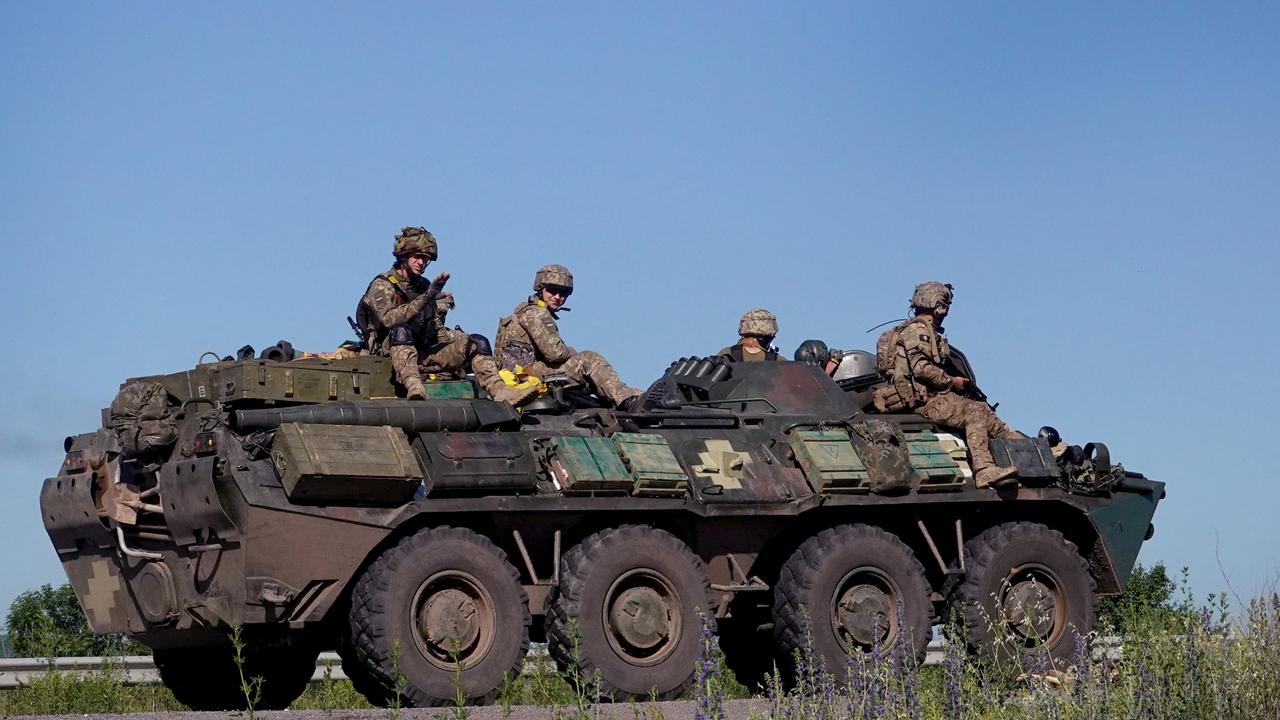
HOW 15-YEAR-OLD SAVED KYIV
A Ukrainian teenager flew his drone over invading Russian forces that helped the military destroy a column of tanks in the early days of the war.
Andrii Pokrasa’s work has been hailed by Ukraine military leaders, who say he helped save the capital city in late February.
“He’s a real hero, a hero of Ukraine,” Yurii Kasjanov, a commander with Ukraine’s unmanned recon unit, told Canada’s Global News.
“He was the only one who was experienced with drones in that region.”
Pokrasa said he was approached by Ukraine’s civil defence when they were looking for the exact coordinates of the Russian column.
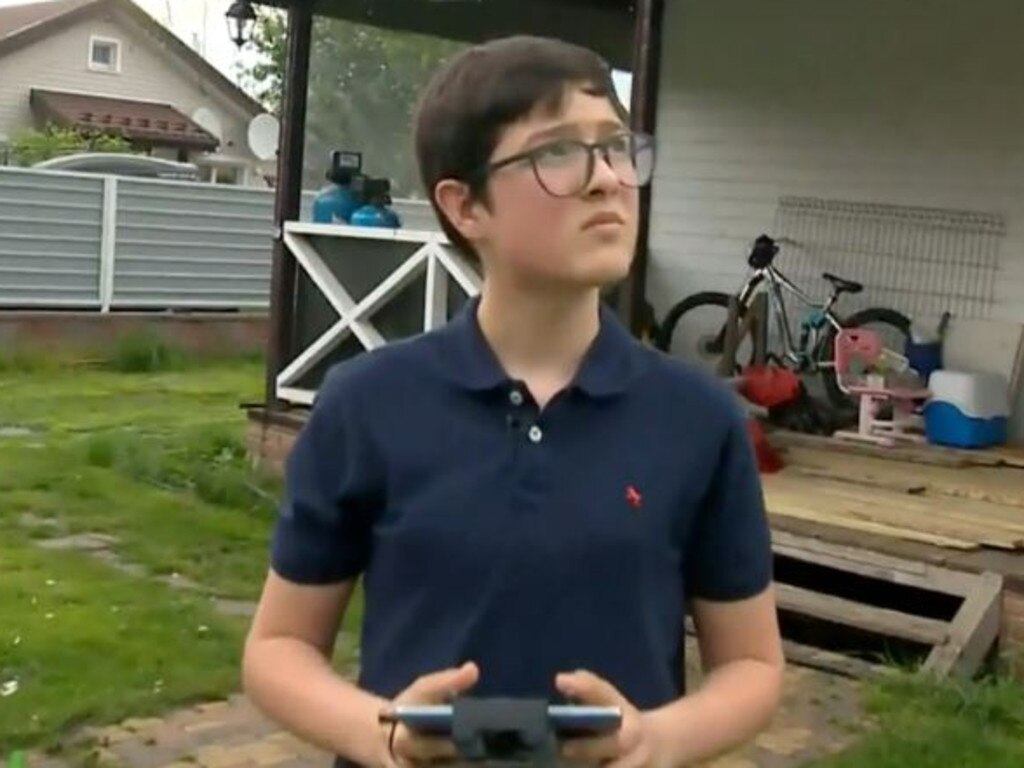
“They provided us information where approximately the Russian column could be. Our goal was to find the exact coordinates and provide the coordinates to the soldiers,” he said.
“It was one of the biggest columns that was moving on the Zhytomyr road and we managed to find it because one of the trucks turned on its lights for a long time,” the teenager said.
Asked how he felt about Russian soldiers being killed as a result, he said although they were “occupiers” they “were still people”.
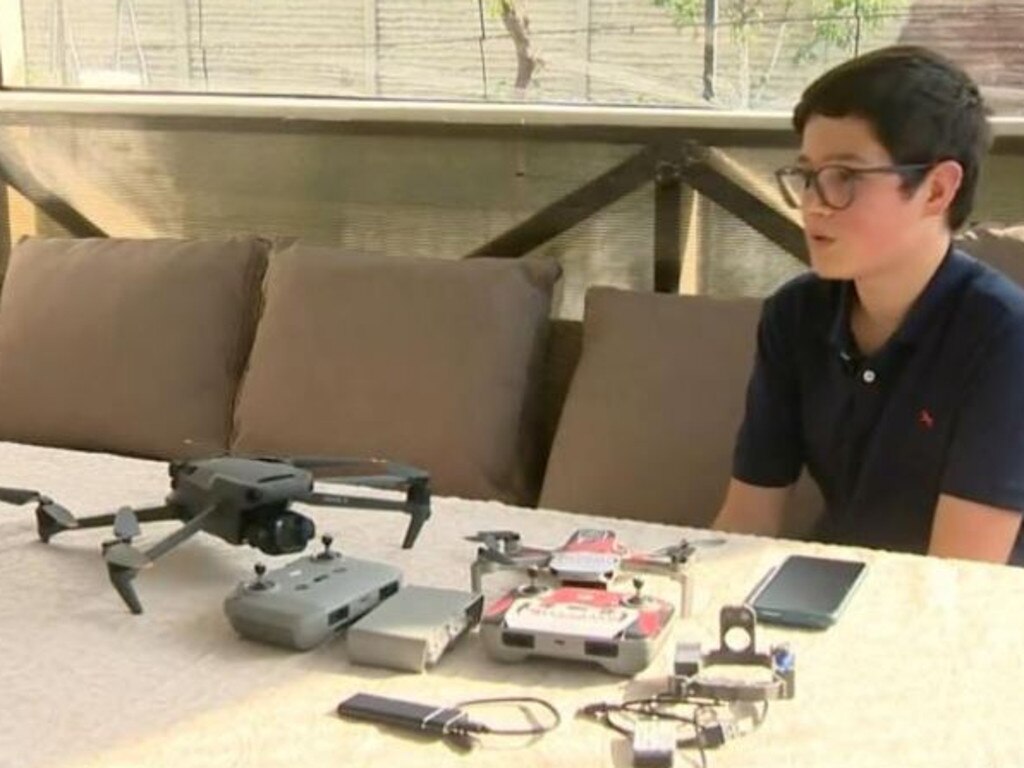
He has only been flying a drone for a year when he was asked to help repel the invaders.
He said his neighbours feared the drone would make them a target, so he and his father would launch their flights from a nearby field at night.
After his initial success, the Ukrainian military equipped Pokrasa with a longer-range drone. He later fled Ukraine with his mother for Poland, where he is enrolled at school.
.
RUSSIA TAKES ‘FULL CONTROL’ OF CITY
Russia claimed its forces have taken full control of residential neighbourhoods in eastern Ukraine’s Severodonetsk, after Kyiv said its outnumbered troops were fighting on in the key eastern hub.
The brutal weeks-long contest for the key city in the Luhansk region continued to grind on, with civilians fleeing and some 800 taking refuge in a chemical factory.
“The residential areas of the city of Severodonetsk have been fully liberated,” Russian Defence Minister Sergei Shoigu said.
The Russian army was still seeking to establish control over the city’s “industrial zone and the nearest settlements,” he said.
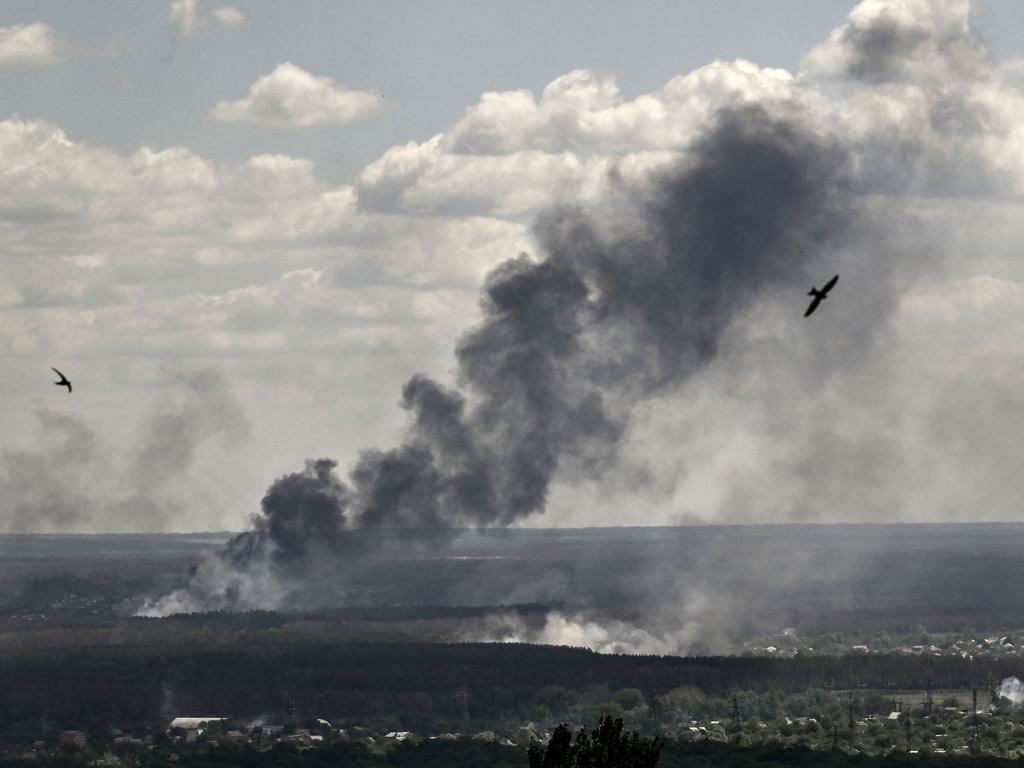
Meanwhile along the war’s main front in Donbas, there appeared to be no letup in the heavy shelling.
“The frontline situation in Ukraine has not changed significantly over the past 24 hours”, Ukraine President Volodymyr Zelenskyy said, adding that the “defence of Donbas continues”.
Moscow has been pushing for control of Severodonetsk as part of its bid to conquer a vast swath of eastern Ukraine, but Kyiv’s forces have so far managed to hold out.
Ukrainian sources noted the overwhelming superiority of Russian artillery in the area.
Mr Zelenskyy has warned Ukrainian forces in the city were outnumbered and the Russians “are stronger”, as fierce street fighting raged.
Lanny Davis, a US lawyer for Ukraine tycoon Dmytro Firtash, said 800 civilians had taken refuge in the bunkers inside Firtash’s huge Azot chemical plant in Severodonetsk.
“These 800 civilians include around 200 out of the plant’s 3,000 employees and approximately 600 inhabitants of the city of Severodonetsk,” Mr Davis said.
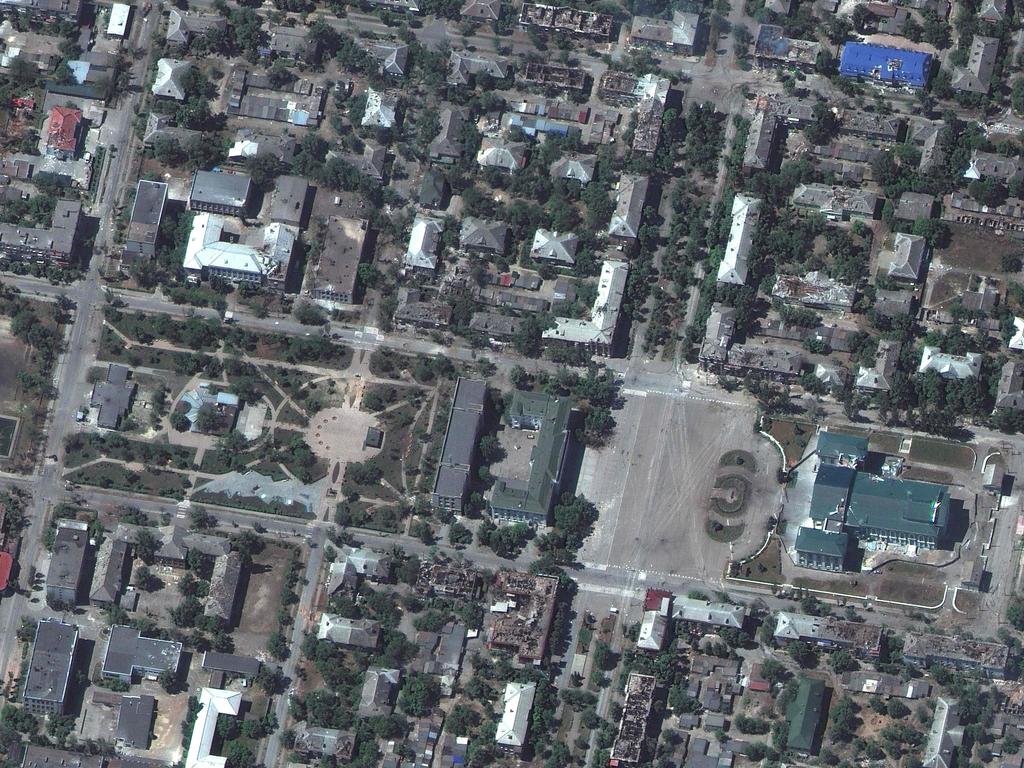
The Ukrainian army said Russian troops were also preparing to attack the key city of Sloviansk, about 65 kilometres west of Severodonetsk.
Its capture would open up the route to Kramatorsk, the main city of the Ukrainian-held part of the Donetsk region.
It comes as the leader of Ukraine’s pro-Russian separatists in Donetsk, Denis Pushilin, confirmed the death of another Russian general in the fighting.
Pushilin expressed on Telegram his “sincere condolences to the family and friends” of Major General Roman Kutuzov, “who showed by example how to serve the fatherland”.
Ukraine’s forces have claimed to have killed several of Russia’s top brass but their exact number is not known as Moscow is tight-lipped on losses.
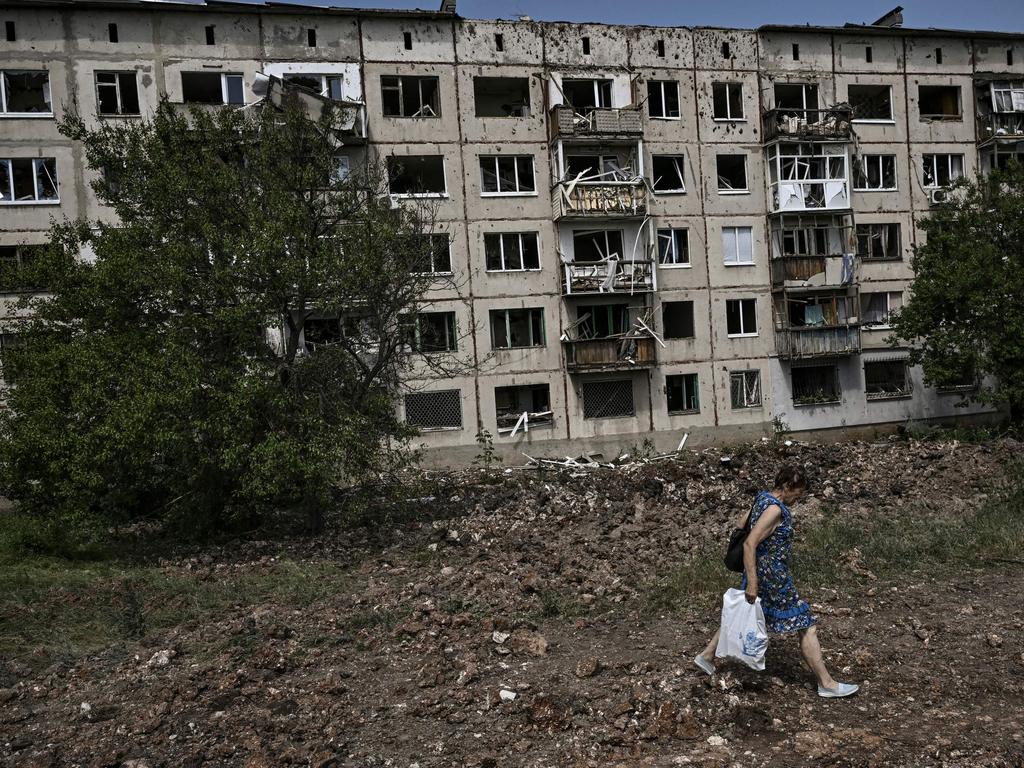
UKRAINE CITIZENS ‘DEPORTED TO RUSSIA’
Several residents of the devastated Ukrainian city of Mariupol who managed to escape claim they were given no choice but to travel to Russia in what the Kyiv government regards as “deportations”.
After spending weeks in a Mariupol basement and following the death of her father, who was killed in a rocket attack, Tetyana decided to leave her city to try to save her nine-year-old daughter.
With no mobile network or any possibility of communicating, she took advantage of a lull in the shelling to go to an assembly point arranged by pro-Russian authorities to find out about exit routes.
There, she was told going to Russia was the only option.
“We were in shock. We did not want to go to Russia,” the 38-year-old accountant said on the phone from Riga in Latvia where she has since sought refuge with her family.
“How can you go to a country that wants to kill you?”
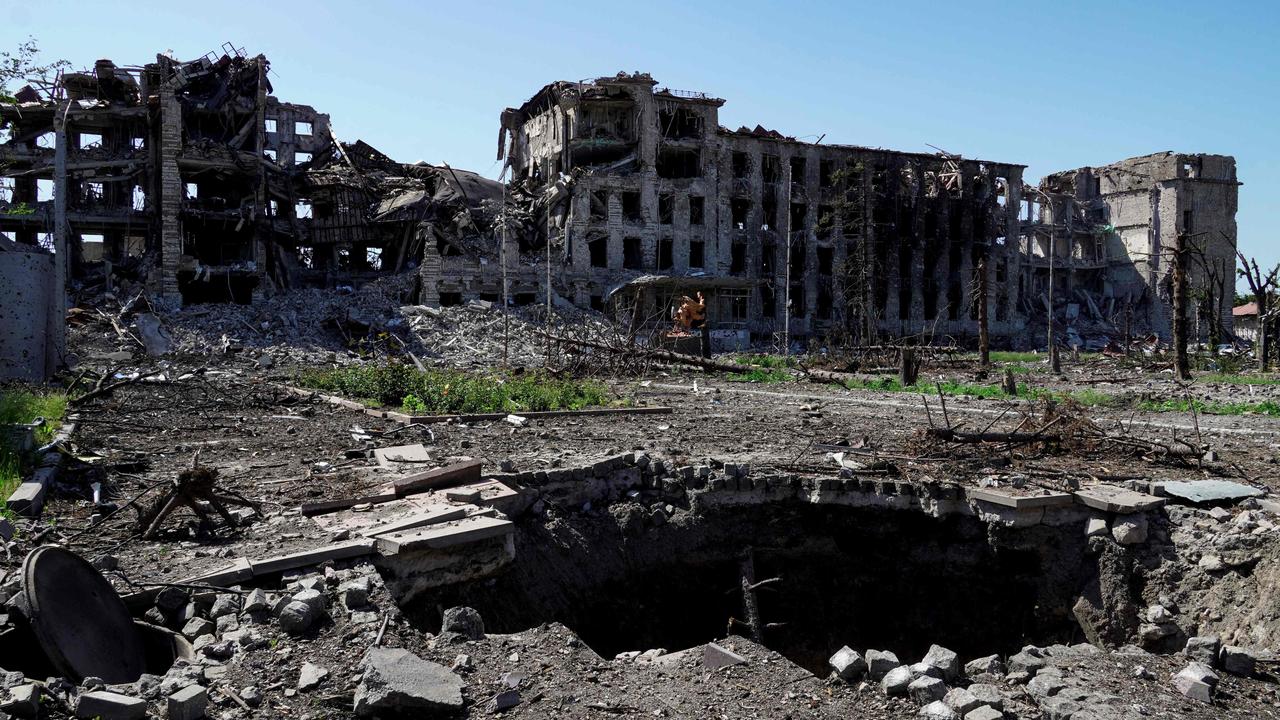
For several weeks, Ukrainian authorities have been accusing Moscow of “illegally transferring” more than a million Ukrainians to Russia or to the parts of Ukraine currently controlled by Russian forces.
A Russian defence ministry official, Mikhail Mizintsev, confirmed the one million number but said the transfers of civilians was only being done to “evacuate” them away from “dangerous areas”.
Some civilians have indeed been forced to go towards Russia because travel to Ukrainian-held areas was blocked by fighting.
Speaking to AFP after crossing from Russia into Estonia, Yelyzaveta, originally from Izyum, a city in the east currently held by Russian forces, said this was the case for her.
“It was impossible to go towards Ukraine,” Yelyzaveta said.
‘YOU CAN’T REALLY SAY NO’
Like Tetyana, two other families from Mariupol – where the Ukrainian government says 20,000 people were killed, said they too were forced to go to Russia.
Svitlana, an employee in a large industrial concern, also hid in a basement with her husband and parents-in-law in Mariupol until some Russian soldiers ordered them to a part of the city fully in Russian hands.
“When an armed man tells you that, you can’t really say no,” said the 46-year-old, who has since been able to travel to Lviv in western Ukraine.
Her family was initially taken to Novoazovsk, a small town near Mariupol that is in the hands of Russia-backed separatists.
There they stayed for four days in a school.
They were then transferred to Starobesheve, where they were put up in a crowded community centre where people slept on the floor.
“The worst was the smell of dirty feet, dirty bodies. It stayed on our things even after we washed them many times,” Svitlana said.
Three days later, the family was interrogated in a building occupied by separatist police.
They had to answer written questions about whether they had relatives in the Ukrainian army, their fingerprints were taken, and they had to hand over their phones for checks.
In a separate room, the men had to undress to show they did not have any Ukrainian patriotic tattoos or combat wounds – a sign that they might be in the military.
“My husband had to take off everything except his underwear and his socks,” Svitlana said.
“We also deleted all photos and social media from our phones,” she said, fearing possible repercussions because of her “pro-Ukrainian position”.
‘WE FINALLY FELT FREE’
Ivan Druz, 23, who left Mariupol with his half-brother in April, suffered the same treatment in Starobesheve.
He was then hoping to go to territory controlled by Ukraine but after a lot of moving around within Russian-occupied areas, Druz, who is now in Riga, was told it was not possible.
“At first they tire you out and then they tell you that you can only leave in one direction,” he said.
After arriving at the Russian border, he had to undress and answer questions about chats with his aunt in Ukrainian.
“They asked me why she was writing to me in Ukrainian” and “wanted to check that I was not a Nazi,” he said.
Once in Russia, the families of Tetyana and Druz were sent to Taganrog, around 100 kilometres (62 miles) from Mariupol.
Just after arriving, they were told by officials that they had to travel by train to Vladimir – around 1,000 kilometres further north.
From there, Ivan and his half-brother had to leave again, this time to the city of Murom, 130 kilometres to the southeast, where they were put up in a hostel for refugees.
Thanks to Russian friends, the families of Ivan, Tetyana and Svitlana eventually travelled to Moscow and took buses for Latvia or Estonia where Ukrainian refugees are being welcomed.
“Once in Latvia, we finally felt free,” Tetyana said.

Russia has warned the war in Ukraine will continue to drag out if the West continues to send arms to Kyiv.
Russian President Vladimir Putin has blasted members of NATO for its going support of Ukraine and warned “armed conflict will be drawn out” if it continues.
“In general, all this fuss about additional arms supplies, in my opinion, has only one goal – to drag out the armed conflict as long as possible,” Mr Putin said in an interview on Russian state TV.
“If [long-rang missiles’ are supplied, we will draw appropriate conclusions from this and use our weapons, of which we have enough, to strike at those targets that we are not striking yet.”
It comes after the United Kingdom and America vowed to send arms in support of Ukraine.
US President Joe Biden pledged to supply short range missiles to Ukraine last month, while UK Defence Secretary Ben Wallace promised to send long-range missiles.
Vladimir Solovyov, who is known as Mr Putin’s voice and one of his key propagandists, also took to the media warning of nuclear action.
“I hope we’ll live through this. If everything keeps progressing the way that it is, only a couple of mutants in Lake Baikal will survive, the rest will be destroyed in a massive nuclear strike.
“Everything is moving in that direction regardless of what either side wants.”
Mr Solovyov added a mistake on Ukraine’s behalf could cause everything to unravel.
“Ukraine will fire and end up hitting one of our power plants and here we go, the process will quickly become uncontrollable, everyone will get more than they asked for. Bang. And there’s nothing left,” he said.
He warned this could become another “bloody page of world history” and said “if people weren’t dying, this would be the funniest comedy show.”
Ukraine is still eager for the West’s support to defend itself from Russian forces.
“We have already entered into a protracted war and we will need constant support,” Ukraine’s deputy defence minister Hannah Malyar said.
“The West must understand that its help cannot be a one thing, but something that continues until out victory.”
Since April, fighting has mostly taken part in Ukraine’s east where Russian forces have made slow but steady advances.
PUTIN’S ‘EXECUTIONER’ KILLED
Meanwhile, a member of a Russian private military company has been shot dead in the Kharkiv region of eastern Ukraine.
Dubbed ‘The Executioner’, Vladimir Andonov is understood to be one of Putin’s most notorious mercenaries.
The 44-year-old Russian, who was a member of the Wagner Group, was killed by a Ukrainian soldier, likely by a sniper, according to Russian sources.
‘The Executioner’ was reportedly involved in the shooting of Ukrainian prisoners of war, as well as the massacre of civilians in Donbas in 2014.
That same year, Andonov received a medal For Merit in Battle for his service in the special forces, it was reported in a local newspaper.
UKRAINIANS HOLDING OUT BUT OUTNUMBERED IN KEY CITY
Ukrainian troops suffered setbacks after retaking parts of flashpoint eastern city Severodonetsk from Russian forces, local officials said on Monday, as the seesaw battle raged on for the strategically important city.
“Fighting is very fierce in Severodonetsk,” regional governor Sergiy Gaiday told Ukraine’s 1+1 television.
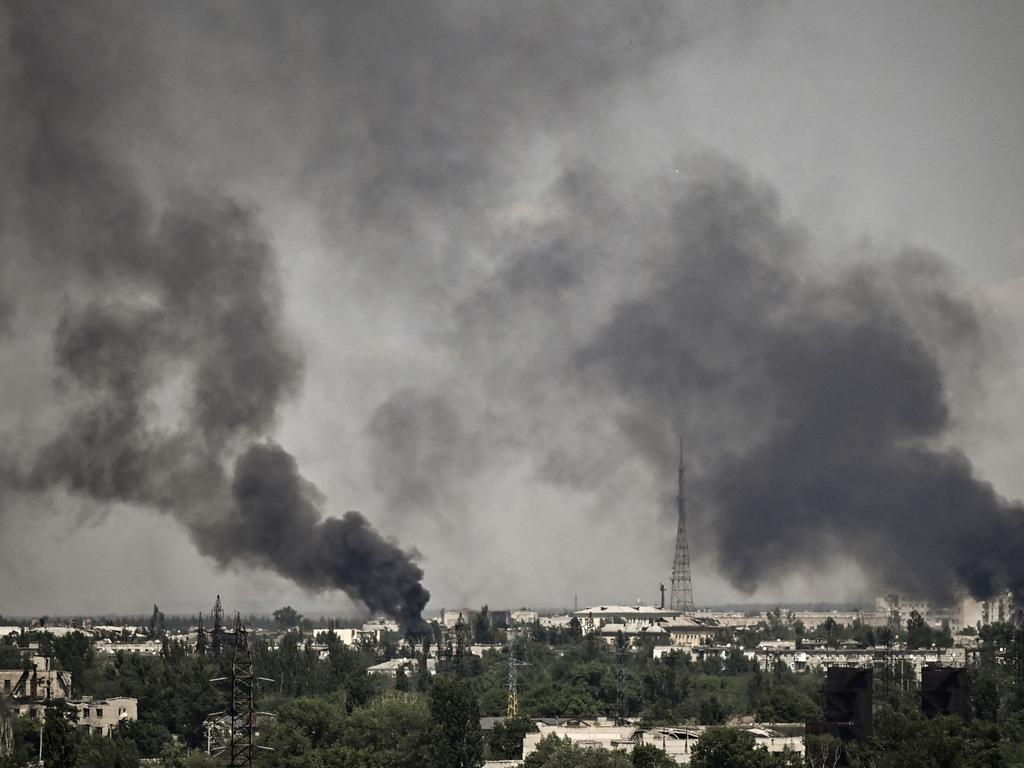
“Our defenders managed to counter-attack and liberate half of the city, but the situation has worsened for us.” Russian forces “are destroying everything with their usual scorched earth tactics” so that “there’s nothing left to defend”, he said.
He said that Kyiv’s troops had “cleared half of Severodonetsk and are moving forward”, after Ukrainian forces earlier appeared on the verge of being driven out of the city.
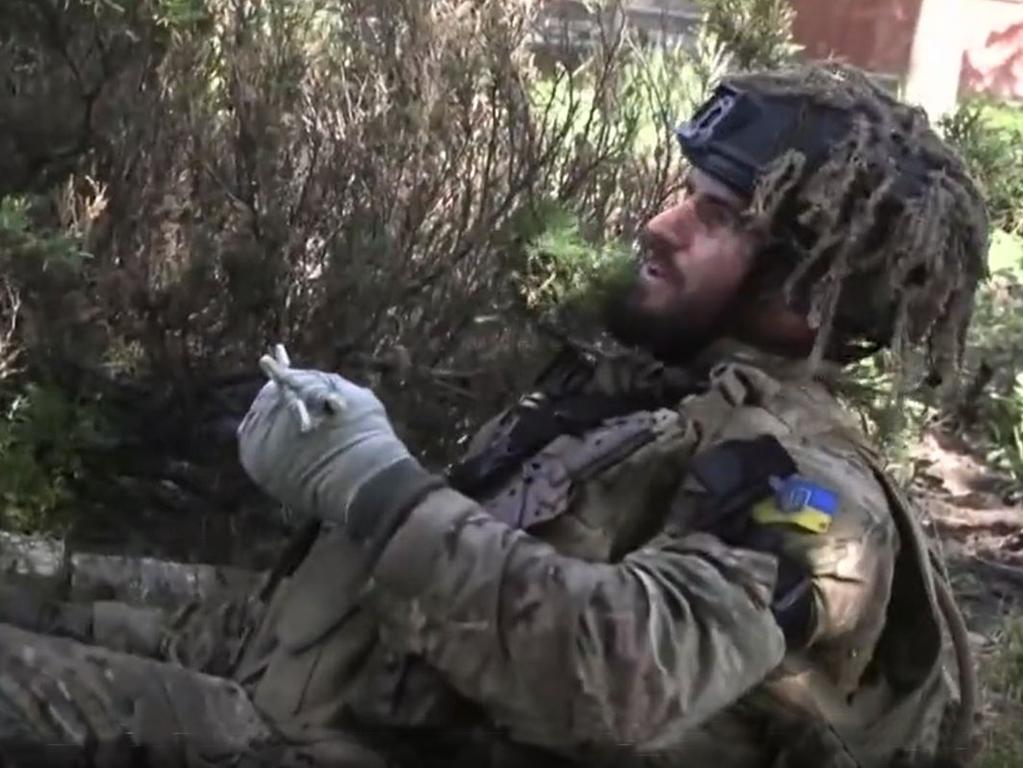
Artillery strikes have intensified on Severodonetsk and neighbouring city Lysychansk, where pensioner Oleksandr Lyakhovets said he had just enough time to save his cat before the flames engulfed his flat after it was hit by a Russian missile.
“They shoot here endlessly … It’s a horror show,” the 67-year-old told AFP.
Ukraine has asked supporting countries for ever more powerful arms to fend off the Russian attack, and its deputy defence minister stressed this support was needed until Moscow was defeated.
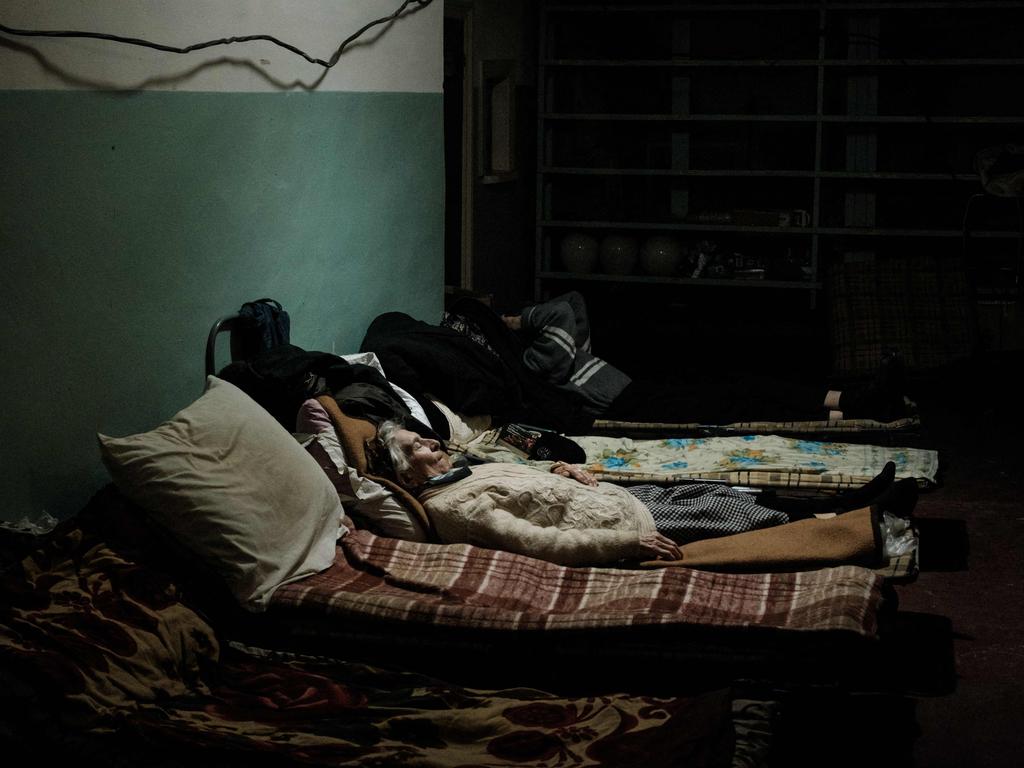
With Russia bringing the weight of its artillery to bear around Severodonetsk – the largest city in the Luhansk region not under Russian control – more help was promised from abroad.
The United Kingdom said it would follow the United States and send long-range missile systems to Ukraine, defying warnings from Russian President Vladimir Putin against supplying Kyiv with the advanced weapons.
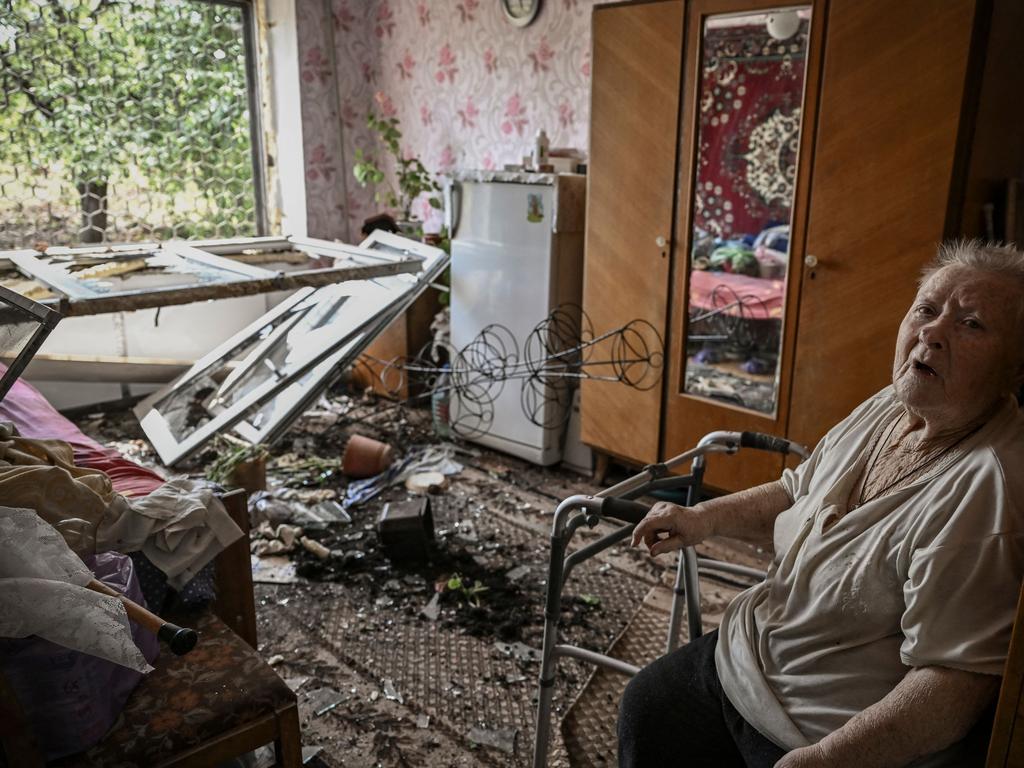
Thousands of civilians have been killed and millions forced to flee their homes since Putin ordered Russian troops into Ukraine on February 24.
Fighting since April has been concentrated in the east of the country, where Russian forces have made slow but steady advances after being beaten back from other parts of Ukraine, including the capital Kyiv.
ALBANESE, PUTIN MAY ATTEND G20
Anthony Albanese says he plans to attend the G20 summit in Bali later this year, despite the chance that Russian President Vladimir Putin may attend.
The prime minister acknowledged it may be an awkward meeting in November should Mr Putin attend as he headed to Indonesia for a two-day official visit on Sunday.
“Of course it’s the case that people who respect human rights would feel uncomfortable with sitting around the table with Vladimir Putin,” Mr Albanese said.
“Vladimir Putin, of course, attended the G20 meeting in Australia after the downing of the airline … that resulted in the death of so many Australians and other international citizens.
“We have no time for what Vladimir Putin has done in Ukraine. We’ve made our position very, very clear on that and we’ll continue to do so.”
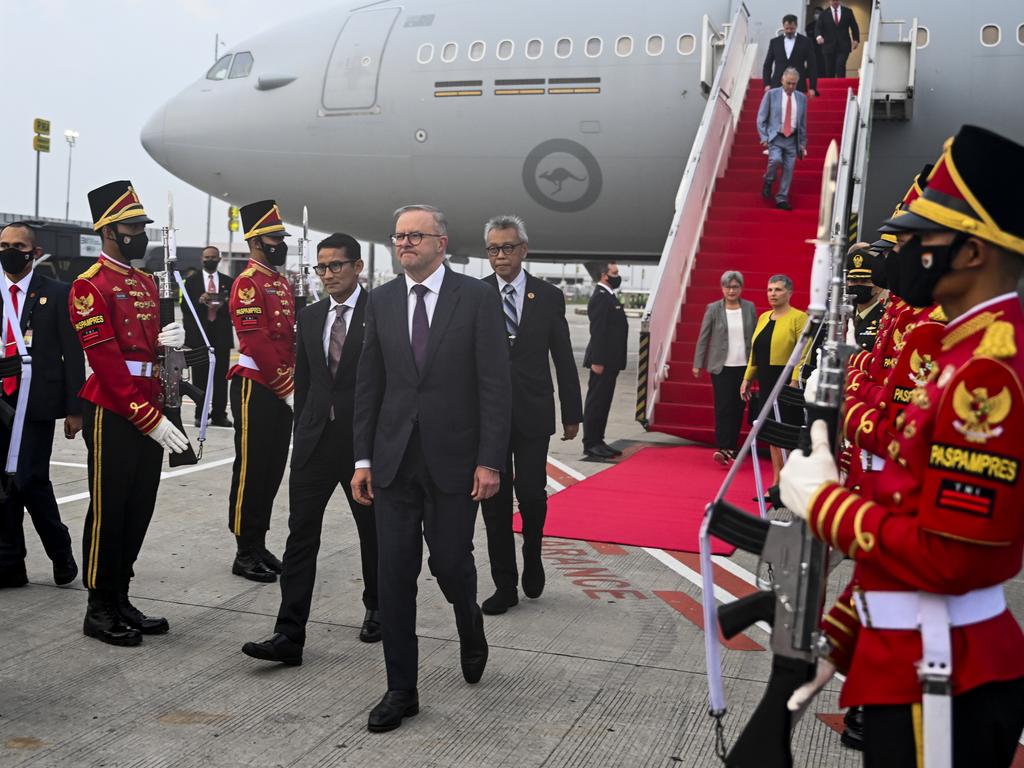
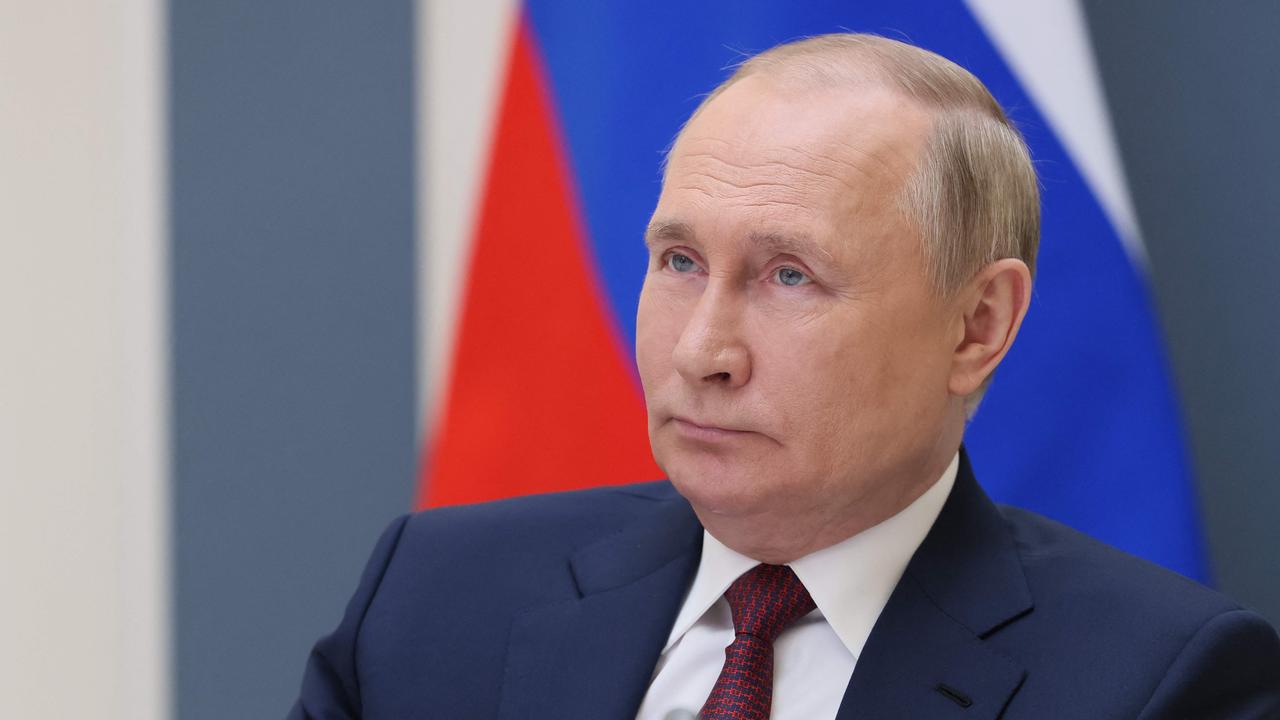
Mr Albanese said Australia needed to strengthen its relations with Indonesia and would travel to Bali to attend the G20 summit.
“[I’m] looking forward to continuing out discussions about the ongoing partnership between our nations, including revitalising our trade relationship,” Mr Albanese said, ahead of meeting with Indonesia president Joko Widodo this week.
PUTIN LOSES 11TH GENERAL
Vladimir Putin has lost his 11th general in his war on Ukraine.
Major-General Roman Kutuzov was the chief of staff of the 29th Combined Arms Army, and is the latest high-ranking officer to loose his life in the war.
He died in a fight in Donbas after Ukrainians ambushed his vehicle, reports Daily Mail.
Russian sources reported Kutuzov was killed in the Nikolaeka settlement, in the Popasnyansky district of Luhansk People’s Republic, close to the frontline of the war.
RUSSIAN MISSILES HIT KYIV IN FRESH ATTACK
Multiple explosions have slammed Kyiv early on Sunday, local time, in the first assault on Ukraine’s capital since 28 April.
Thick billows of black smoke could be seen rising over above the city after the attack and at least one person was reported to be hurt.
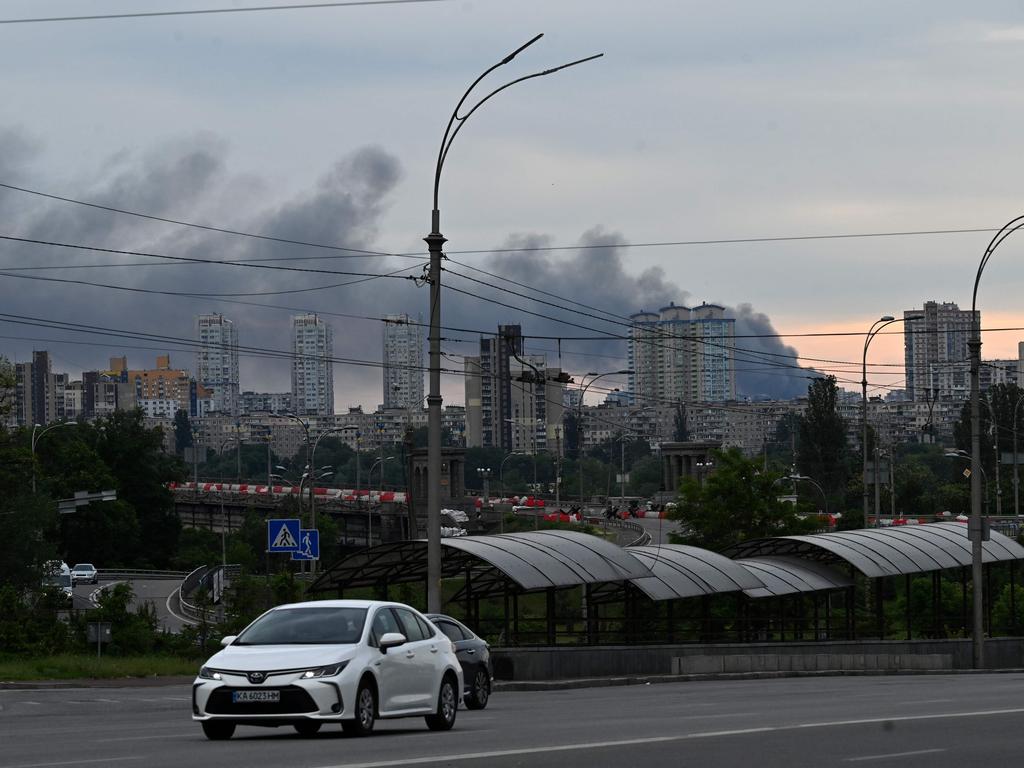
Kyiv had largely escaped attacks recently as Russian forced concentrated on the Donbas region in Eastern Ukraine, and life in the busy city had partly returned to normal with residents back on the streets.
Earlier on Sunday, Russian cruise missiles struck two sites in the east of the city.
Video posted to social media by Kyiv civilian Slav Marchenko showed the force of the missiles hitting the city.
Missile Strikes in Kyiv earlier this morning. The city I grew up in. My favorite place on earth…#Ukraine#Kyiv#russiapic.twitter.com/dkDfzK7mls
— Slav Marchenko 🇺🇦 (@slavmarchenko) June 5, 2022
It comes as Russia claims to have destroyed tanks supplied to Ukraine by eastern European countries during strikes on Kyiv.
“High-precision, long-range missiles fired by the Russian Aerospace Forces on the outskirts of Kyiv destroyed T-72 tanks supplied by eastern European countries and other armoured vehicles that were in hangars,” Russian defence ministry spokesman Igor Konashenkov said.
Kyiv’s mayor, Vitali Klitschko, had said that the Ukrainian capital had been hit by “several explosions in Darnytsky and Dniprovsky districts of city”, the first such strikes on the capital since April 28.
According to the Ukrainian air force, several cruise missiles were fired in the direction of Kyiv by Russian TU-95 planes based in the Caspian Sea, one of which was destroyed.
Relative calm had returned in recent weeks to Kyiv after Moscow abandoned its assault on the capital to concentrate on eastern Ukraine.
PUTIN WILL STRIKE MORE TARGETS IF WEST SUPPLIES ARMS
Russian President Vladimir Putin warned Moscow will strike new targets if the West supplies long-range missiles to Ukraine and said new arms deliveries to Kyiv were aimed at “prolonging the conflict”.
If Kyiv is supplied with long-range missiles, “we will draw the appropriate conclusions and use our arms … to strike targets we haven’t hit before,” Putin was quoted by Russian news agencies as saying.
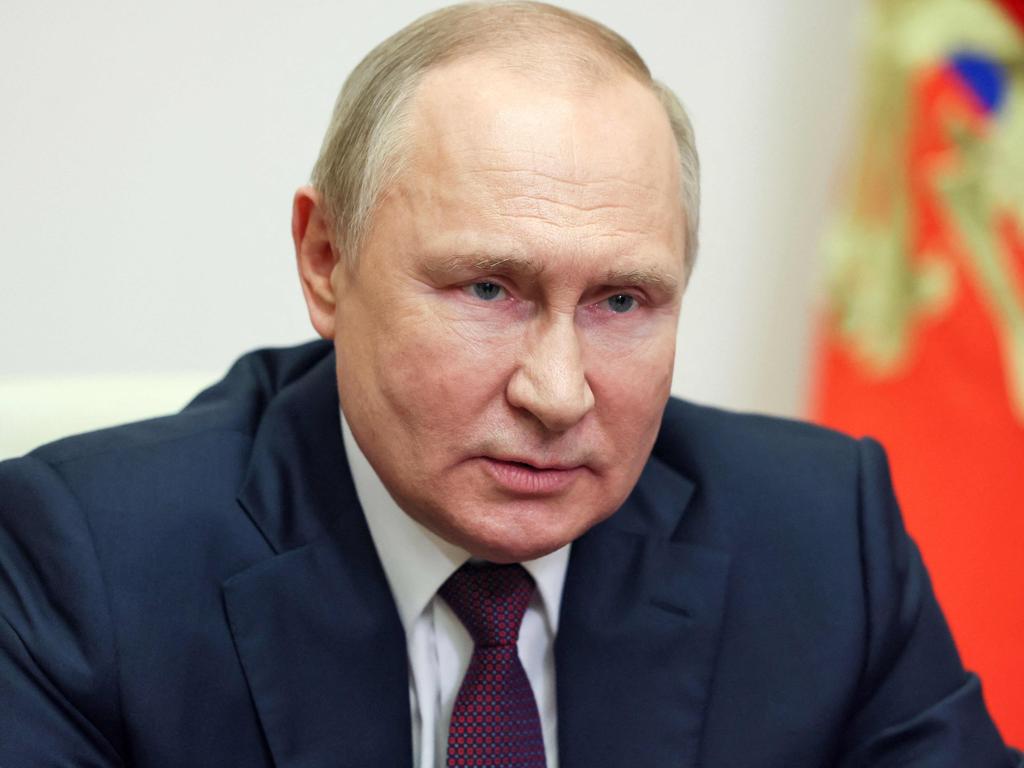
In extracts of an interview to be broadcast on Rossiya-1 television, Putin did not specify exactly which targets could be hit nor the exact range of the missiles to which Moscow would react.
But his comments came just days after the United States announced it would supply Ukraine with Himars multiple launch rocket systems.
Himars is a mobile unit that can simultaneously launch multiple precision-guided missiles up to 80km away.
Military experts say that the range of the Himars systems is slightly longer than that of similar Russian systems, meaning Kyiv’s forces could strike enemy artillery while keeping out of Moscow’s reach.
US President Joe Biden has nevertheless ruled out supplying Ukraine with systems that could reach as far as Russia, despite Kyiv’s repeated demands for such weapons.
Putin said that there was “nothing new” in the weapons supplied by Washington to Kyiv, and that Ukrainian forces had at their disposal weapons “similar to Soviet- or Russian-made systems”.
The range of the missiles did not “depend on the system itself, but on the missiles used,” the Russian leader continued.
“From what we know and understand today, they are systems using missiles with range of 45-70 kilometres”.
Putin said that the sole aim of the West supplying arms to Ukraine was “to prolong the conflict for as long as possible”.
More Coverage
Originally published as Vladimir Putin’s right-hand woman Valentina Matviyenko was Ukrainian born



